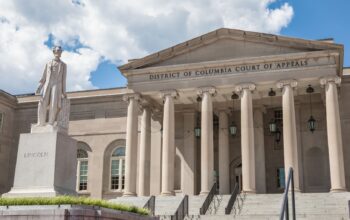by
Every Jan. 1, while many commemorate the new year, Haitian families and communities across the globe eagerly convene and recognize their ancestors’ resilience in creating the world’s first free Black republic. From eating Soup Joumou to fun celebrations, Haiti’s Independence Day commemorates Haitian culture and strength, while recognizing the ample work still needed for a truly liberated nation.
Accomplished by resisting imperialism and abolishing enslavement, the Haitian Revolution inspired an onslaught of insurrections throughout the New World, solidifying its prominence as a symbol of solidarity among the African diaspora.
Despite this historic triumph, the fight for physiological needs in Haiti persists amidst social and political instability.
“What is always forgotten in that comparison is that Haiti is a nation that was entirely built by the Black slaves,” said Dumont. “Haiti is a beautiful story and we need to understand that we are a very young nation that started from nothing.”
Haitian-Americans Share Traditions, Significance of Celebration
Forming a nation on such an uneven playing field and continuing to tenaciously work toward self-determination showcases the Haitian diaspora’s irrepressible spirit. The country’s persistence, notwithstanding its historic and current strife, serves as an inspiration for young Haitians worldwide to continue celebrating their heritage and ancestry.
Richard Lespinasse is a first-generation Haitian-American whose family immigrated to the U.S. from Port-au-Prince in the 1960s during François Duvalier’s regime. Having visited Haiti various times either for vacation or charitable work, Lespinasse holds a deep love for the island and its history.
“Haiti is the only country ever to gain independence from a slave revolt,” he said. “Celebrating independence is important to me and my family because it is seen as a big source of pride.”
His family keeps their ancestors’ spirits alive by partaking in the widespread Haitian tradition of drinking the pumpkin or squash-based Soup Joumou. The delicacy was once only made for French enslavers during colonial rule and was seen as a token of luck. In 1804, the liberated prepared the soup for themselves as a reclamation of their freedom.
“My grandmother would begin preparing the soup on New Year’s Eve so it would be ready by New Year’s Day,” Lespinasse, 34, shared.
Abigail Joseph and her family also participate in enjoying Soup Joumou during the holiday. She eats it twice — once at church at midnight on Jan. 1, then again at home after her mother and godmother prepare it.
Growing up surrounded by other Haitians instilled a strong sense of community in Joseph — evident in how she views the holiday as a means of connecting with people of similar interests, backgrounds and walks of life. She hopes to pass on Independence Day traditions to her family’s future generations, such as going to church and eating Soup Joumou — once she learns how to make it.
“It’s just a reminder of the fight our ancestors won,” Joseph, 22, said about the dish.
Like Lespinasse, Joseph is proud to observe Independence Day due to Haiti’s rich history and unshakeable spirit, especially considering the nation’s current crises.
The Caribbean country has been in a State of Emergency since March due to gang-related violence fueled by firearms and ammunition primarily from the U.S., causing the forceful displacement of more than 702 thousand Haitians from their homes.
The United Nations Security Council attempted various peacekeeping opportunities in 2024, including a Kenyan-led Multinational Security Support mission, but they haven’t been successful as the displacement and violence intensified throughout the year.
Joseph believes Haiti’s current situation amplifies the significance of celebrating its fight for independence over two centuries ago.
“It’s a real-life story of how Africans, despite being displaced and forced into slavery, were able to band together and fight for their independence,” she said. “In a society [that likes] to put down Black people, I believe that this story is able to show that we can fight for what we want and need.”




